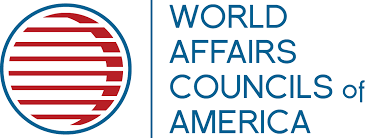The United Nations
The United Nations has been lauded as the most successful project for peace in human history and decried as a bunch of blowhards talking and getting nothing done. The truth ends up somewhere in-between, but it is important for people to have a better understanding of what this international organization does, what its limitations are, and why it is the favorite punching bag of people of all stripes.
Speaking with former Ambassador to Denmark, Dick Swett, this episode will help you to wrap your head around this massive project that emerged in the aftermath of the Second World War. While there are real challenges to the effectiveness of the United Nations, especially in this time of increased geopolitical conflict, many of the individual institutions under the umbrella of the UN have achieved major improvements in their individual areas of interest.
Whether you have a positive, negative, or ambivalent view of this global institution, there is no denying the fact that it does bring together the key players in foreign policy to allow for a forum of exchange, collaboration, and burden sharing. While there certainly is room for improvement in its overall functioning, it is interesting to think about what shape the world would be in today if not for this institution, especially after seeing the failure of the League of Nations in the wake of the First World War.
5-hour Energy Ingredients: 1 bottle of 5-hour Energy.
|
Mojito Ingredients: 5 mint leaves, 2 oz. white rum, 1 oz. lime juice, 1/2 oz. simple syrup, handful of ice, club soda, 1/2 cup club soda, 3 slices of lime.
|
Manhattan Ingredients: 2 oz. bourbon, 1 oz. sweet vermouth, 2 dashes of bitters, 1 maraschino cherry, handful of ice.
|
 Richard N. Swett was nominated as ambassador to Denmark in 1998. In 1990, he was elected to the United States House of Representatives. He served on the U.S. Congressional Delegation for Relations with the European Parliament; the Congressional Human Rights Caucus; and the Committees on Public Works and Transportation, and Science, Space and Technology.
Richard N. Swett was nominated as ambassador to Denmark in 1998. In 1990, he was elected to the United States House of Representatives. He served on the U.S. Congressional Delegation for Relations with the European Parliament; the Congressional Human Rights Caucus; and the Committees on Public Works and Transportation, and Science, Space and Technology.
Ambassador Swett’s business experience encompasses architectural design, corporate management, project development and finance.
He previously served as managing principal of the Washington, D.C., office for the eighth largest architecture and engineering firm in the United States, and currently is developing alternative energy and socio-economic enterprises in developing countries around the world, through his own company Climate Prosperity Enterprise Solutions. His activity is primarily in real estate, alternative energy, energy conservation, industrial development and international export promotion. He has consulted on energy technology projects and assisted with financing through the World Bank and the European Bank of Reconstruction and Development in Eastern and Central Europe. He also worked with U.S. government organizations, such as USAID and the United States Trade and Development Agency.





